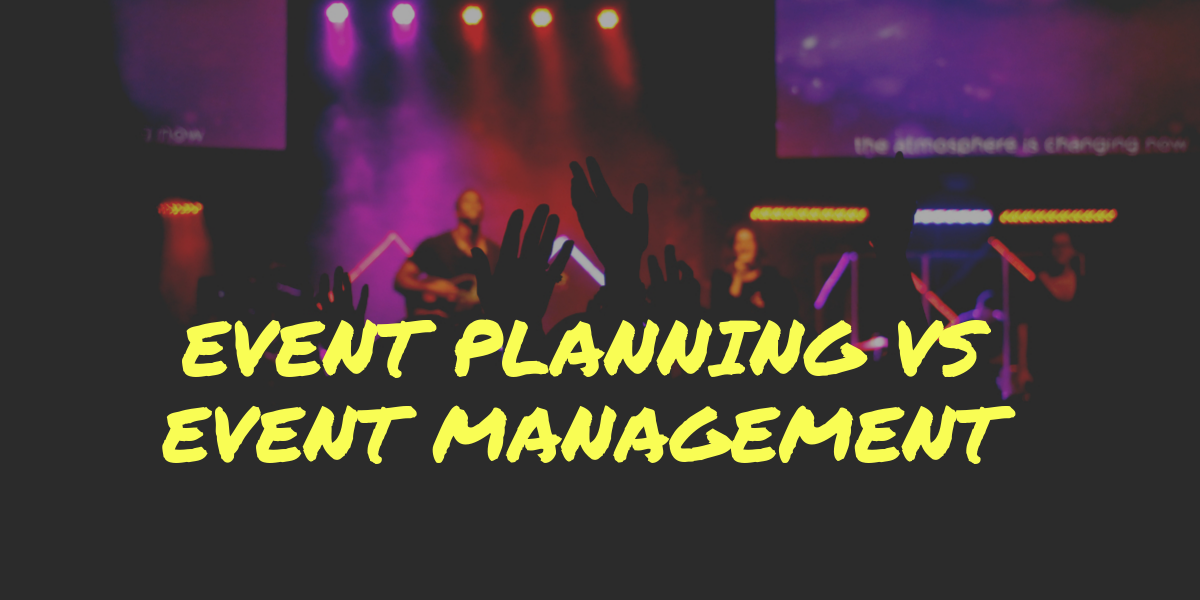The Future of Event Productions: Trends You Required to Know
The Future of Event Productions: Trends You Required to Know
Blog Article
Understanding How Occasions Manufacturing Works: A Comprehensive Overview of the Process
The details of occasion manufacturing need a systematic strategy that incorporates numerous phases, each playing a crucial role in the general success of an event. Comprehending the nuances of budgeting, resource allotment, and on-site administration is vital for any type of expert in this field.
Preliminary Planning and Idea Development
Effective initial planning and concept development act as the structure for effective events production. This stage entails specifying the occasion's function, target audience, and desired outcomes. A clear vision is essential; it guides all succeeding choices and assists line up the team's initiatives towards an usual goal.
During this phase, conceptualizing sessions can be invaluable. Involving stakeholders, consisting of clients, sponsors, and potential participants, cultivates a joint atmosphere that produces innovative ideas. In addition, detailed market study need to be carried out to comprehend fads, choices, and prospective challenges.
As soon as the idea is established, it is critical to produce a comprehensive event outline. This overview ought to include the occasion's motif, style, and essential activities. Establishing a timeline is just as essential, as it aids to handle tasks and due dates effectively.
Budgeting and Source Allocation
With a solid principle in place, interest has to transform to budgeting and resource allocation, which are important elements in performing the event effectively. A well-defined spending plan serves as a roadmap, outlining all anticipated costs and offered sources - Event Productions.
Source allotment includes appointing both human and monetary resources to various jobs and parts of the occasion. Prioritization is crucial; important components need to obtain ample financing while much less vital elements may require an extra traditional technique. Backup preparation is important-- assigning a portion of the spending plan for unforeseen expenses can minimize monetary risks.
Additionally, efficient communication amongst staff member regarding budget plan restrictions fosters cooperation and advancement. This promotes the liable use of resources and urges innovative services to remain within spending plan. Eventually, a strategic technique to budgeting and resource allowance lays the groundwork for an effective event, making it possible for coordinators to concentrate on providing a remarkable experience for attendees while keeping monetary honesty.
Logistics and Sychronisation
Navigating the intricacies of logistics and coordination is crucial for the seamless implementation of any occasion. This stage involves careful preparation and organization to ensure that all components work in consistency. Trick aspects include venue option, transportation setups, and the organizing of different activities.
Reliable logistics begins with a complete assessment of the place's capabilities and restrictions. This consists of recognizing the layout, accessibility points, and available sources. Once the venue is verified, transportation logistics need to be developed, incorporating the activity of participants, equipment, and materials. Coordinating these elements requires partnership with vendors, providers, and transportation services to make sure timely shipments and pickups.
An additional critical aspect is the growth of a thorough timeline that lays out all logistical components leading up to the event. This timeline works as a roadmap, detailing vital landmarks and due dates for tasks such as equipment arrangement, providing services, and audiovisual installations. Normal interaction with all stakeholders is important to address any kind of prospective problems proactively.
Execution and On-Site Monitoring
Successful execution and on-site monitoring are important for transforming thorough strategies into fact throughout an event. This stage includes the seamless coordination of numerous aspects, guaranteeing that every information lines up with the recognized vision. On-site supervisors play an essential role, acting as the main point of interaction among suppliers, staff, and stakeholders. Their capacity to make real-time decisions can dramatically affect the occasion's success.
A well-defined schedule is necessary, working as a roadmap for all activities. Occasion managers need to make certain that setup takes place on schedule, sticking to timelines for sound checks, continue reading this providing distributions, and guest arrivals. Efficient problem-solving skills are additionally important; unexpected difficulties can arise, needing fast thinking and versatility to keep the event's flow.
This degree of involvement not just improves the overall experience but also mirrors the professionalism of the event team. Inevitably, effective execution and on-site management joint on thorough prep work, efficient communication, and a dedication to delivering a remarkable event for all entailed.

Post-Event Evaluation and Comments
The end result of any type of occasion lies not only in its implementation but likewise in the thorough examination that follows. Post-event examination is essential for establishing the overall success of the event and determining locations for improvement. This process commonly includes celebration feedback from various stakeholders, including guests, suppliers, and staff member, to acquire a detailed viewpoint on their experiences.
To structure the assessment, occasion coordinators typically make use of interviews and surveys, concentrating on key performance indicators such as attendee complete satisfaction, logistical performance, and budget adherence. Evaluating this data enables organizers to analyze whether the event met its goals and to comprehend the toughness and weaknesses of the execution.
By methodically dealing with responses and applying modifications, event specialists can improve their methods, ultimately leading to even more impactful and effective events. In conclusion, post-event analysis is an essential action in the event manufacturing procedure that ensures recurring growth and excellence in future endeavors (Event Productions).
Verdict

The details of event manufacturing demand a systematic approach that incorporates numerous stages, each playing an essential function in the total success of an event.With a solid principle in place, interest has to turn to budgeting and resource appropriation, which are crucial components in performing the occasion efficiently.Resource allotment includes appointing both financial and human sources to numerous tasks and components of reference the event. Eventually, a critical approach to budgeting and resource allotment lays the groundwork for a successful occasion, allowing organizers to concentrate on delivering a memorable experience for attendees while preserving monetary stability.

Report this page